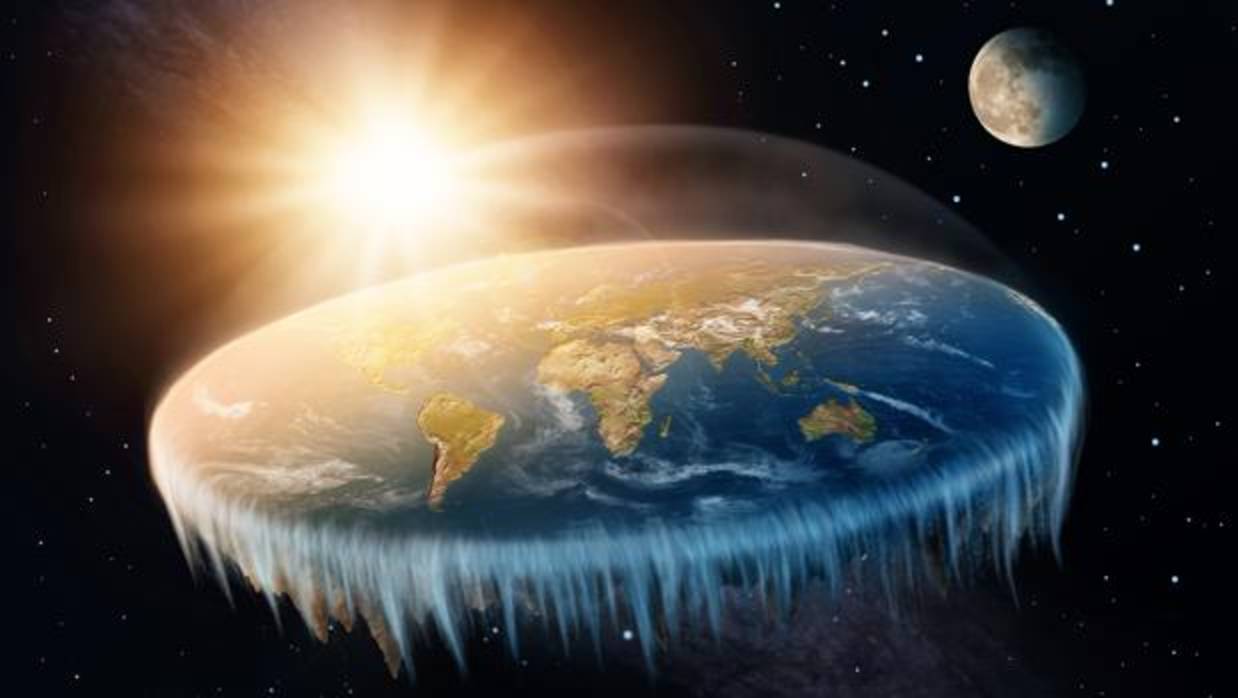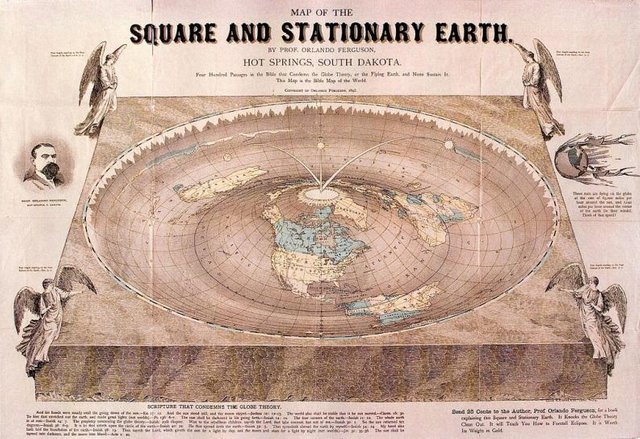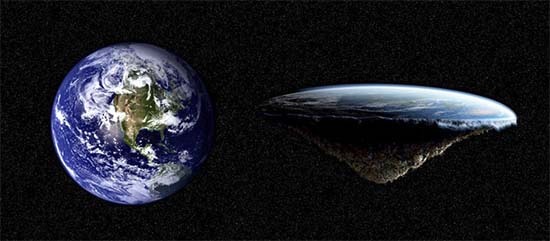What would happen if the Earth were totally flat?
For starters, there would not even be gravity or magnetic field, so we could be fired from the Solar System or stay "fried".

The Earth is round, but the belief in a flat Earth refuses to die. A revealing blog from the Lamont-Doherty Earth Observatory at Columbia University explains what would happen if the planet were really flat.
In the first place, a flattened planet like the one that defends the Flat Earth Society, an organization that defends that idea and of which some famous Americans form part, could not have gravity. It is not clear how gravity would work or be created in such a world, says the institution's geophysicist James Davis. It is a big problem, since gravity explains a wide range of terrestrial and cosmic observations. The same measurable force that causes an apple to fall from a tree also causes the moon to orbit around the Earth and all the planets orbit around the sun.
People who believe in a flat Earth assume that gravity acts directly, but there is no evidence to suggest that it worked that way. What we know about gravity suggests that it would pull toward the center of the disk that forms the so-called flat Earth. That means that it would only pull down at a point in the center of the disk. As it moved further and further away from the center, gravity would pull more and more horizontally. This would have some strange impacts, such as sucking up all the water towards the center of the world and causing the trees and plants to grow diagonally, as they develop in the opposite direction to the pull of gravity.
Then there is the Sun. In the scientifically supported model of the solar system, the Earth revolves around the Sun because the latter is much more massive and has more gravity. However, the Earth does not fall to the Sun because it travels in an orbit. In other words, the sun's gravity is not acting alone. The planet is also traveling in a direction perpendicular to the gravitational pull of the star; if it were possible to deactivate that gravity, the Earth would shoot in a straight line and come out of the solar system. In contrast, the linear pulse and the sun's gravity combine, resulting in a circular orbit around the sun.
The plane model of the Earth locates the planet at the center of the universe, but does not suggest that the Sun orbits the Earth. On the contrary, the sun rotates on the upper side of the world like a carousel, emitting light and heat downwards like a desk lamp. Without the linear and perpendicular impulse that helps generate an orbit, it is not clear what force would prevent the Sun and the Moon from hovering above the Earth, Davis says, instead of hitting it.

Similarly, in a flat world, artificial satellites would probably not be possible. On how they would orbit a plane, Davis argues that "there is a series of satellite missions that society depends on that simply would not work." For this reason, he says he can not think "how GPS would work on a flat Earth".
If the Sun and Moon simply revolve around one side of a flat Earth, there is likely to be a procession of days and nights. But it would not explain the seasons, the eclipses and many other phenomena. The Sun should also, presumably, be smaller than Earth so as not to burn or crash into our planet or the Moon. However, we know that the Sun is more than 100 times the diameter of the Earth.
Atmosphere removed
Deep beneath the earth, the solid core of the Earth generates the magnetic field of the planet. But on a flat planet, that would have to be replaced by something else. Maybe a sheet of liquid metal. That, however, would not rotate in a way that would create a magnetic field. Without a magnetic field, charged particles from the sun would fry the planet. They could eliminate the atmosphere, as they did after Mars lost its magnetic field, and air and oceans escaped into space.
The movement of the tectonic plate and the seismicity depend on a round Earth, because only one sphere fits all the plates in a sensible way, says Davis. The movements of the plates on one side of the Earth affect the movements on the other. The areas of the Earth that create bark, such as the mid-Atlantic mountain range, are counteracted by places that consume bark, such as subduction zones. On a flat Earth, none of this could be adequately explained. There should also be an explanation of what happens on the edge of the world. One could imagine that it could fall, but that would probably endanger the proposed wall that prevents people from falling out of the world in the form of a disk.

Perhaps one of the most striking oddities is that the proposed map of the flat Earth is totally different. Place the Arctic in the center while Antarctica forms a "wall of ice" around the edges. In such a world, traveling would be very different. Flying from Australia to certain parts of Antarctica would be, for example, an eternity: you would have to travel through the Arctic and both Americas to get there. In addition, certain feats of the real world, such as traveling through Antarctica (which has been done many times), would be impossible.
Contrary to popular belief, it is a mistake to think that many societies of serious and educated people once believed in the theory of the flat Earth.
"With few extraordinary exceptions, no one educated in the history of Western civilization since the third century of our era believed that the Earth was flat", noted historian Jeffrey Burton Russell in 1997. "A round Earth appears at least since the century VI before Christ with Pythagoras, who was followed by Aristotle, Euclid and Aristarchus, among others, observing that the earth was a sphere ", concludes Davis.
 SOURCE:
SOURCE:
https://www.vix.com/es/btg/curiosidades/63283/que-pasaria-si-la-tierra-fuera-plana
http://www.abc.es/ciencia/abci-pasaria-si-tierra-fuera-realmente-plana-201802010945_noticia.html
All the water would be pulled to the center because the gravity would be all screwed up. People would not be able to venture toward the ends because gravity would pull you back and if you jumped at any place away from the center it would pull u toward the center instead of straight down.